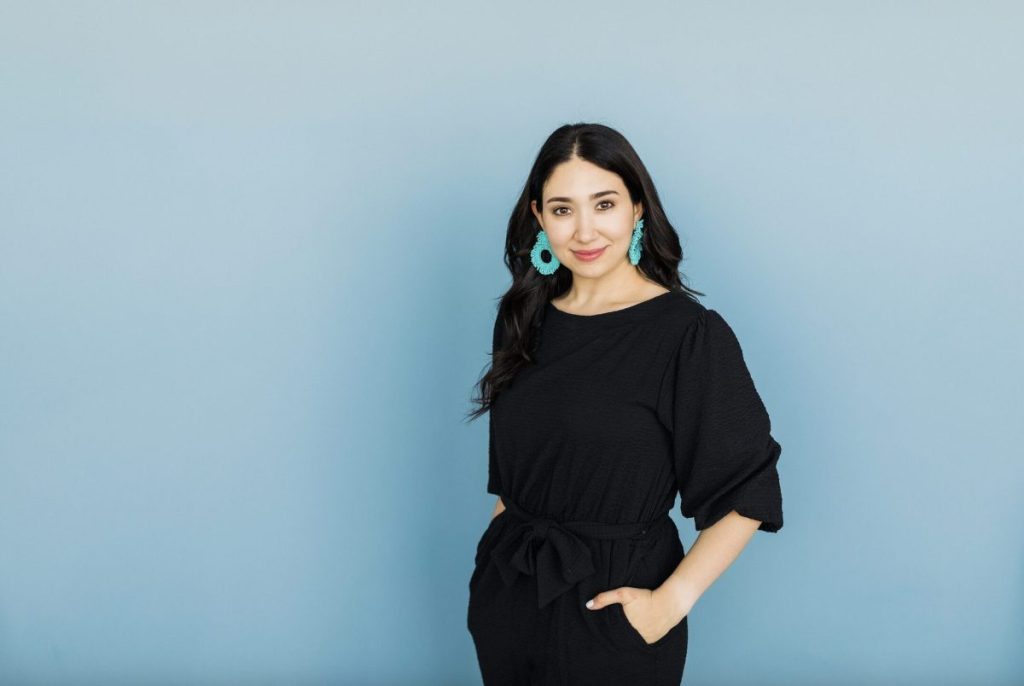Building a Cannabis Empire Out of Cuban Grit
October 22, 2025

Cristina Aranguiz was raised to understand that having a strong work ethic is more than an important professional trait – it can be a matter of survival.
She’s the co-founder and CEO of two cannabis companies, recreational Cannabis & Glass, based in Washington, and medicinal Iowa Cannabis Co. And she’s been successfully scaling both for the better part of a decade. Combined, she manages over 200 employees working in seven locations throughout Washington, Oregon and Iowa, and plans to add two more states – Minnesota and Florida – to that list by the end of next year. (She declined to disclose revenue figures.)
Aranguiz got into the recreational cannabis industry in 2014, at age 22 – when it was worth only $2.7 billion. (For reference: In 2024, the cannabis industry generated $30.1 billion in revenue.) Starting up in an industry in its infancy is tough – but “tough” is part of who Aranguiz is.
She grew up the granddaughter of Cuban refugees, who came to Miami in the late 1960s via the “freedom flights” coordinated by President John F. Kennedy’s administration. “They lost everything in that process,” Aranguiz, now 33, says. “I spent a lot of my early childhood with them, around their kitchen table, hearing about … the sacrifices they made so I could build a life in America.”
Through these mealtime discussions, she also heard about how “they rebuilt their lives,” she says – and baked into those tales were lessons on “the value of hard work, and that nothing is expected – that you have to earn everything you have.”
Initially, Aranguiz had sought to apply that generational work ethic to a career in journalism. She studied in Washington, D.C., but then relocated to Montana in 2012 for a reporting job, before she’d even finished her degree. There, she met her now-husband, Tate – and soon after, cannabis was legalized in nearby Washington state.
“It was about two hours away, and at the time, we were two young stoners,” she recalled with a laugh. As such, getting in on the ground floor of the industry seemed to come with multiple upsides for the pair, and they hoped “to benefit from the ‘green rush.’” Though research now shows that only about 27% of such businesses become profitable, “at the time, we had a healthy dose of naive optimism.”
So, the pair moved to Washington in hopes of finding success. They entered a lottery for $250 – an ideal system, Aranguiz says, that promotes equitable access to opportunities in cannabis – and won a license. They used that to open up their first dispensary, a single location inside of a warehouse with cheap rent in “not-a-super part of town.”
“We painted the walls ourselves, installed a sales counter, and had no employees for the first six months,” she says – which meant pulling from the drive instilled in her by her family to get a then-fledgling business in a then-fledgling industry off the ground.
Youth as a Feature, Not a Bug
Being a member of a generation that has increasingly participated in cannabis use over the years figured big in the company’s growth, as it helped her better “get” the consumer from the start. “We were so young [when we launched] that we understood the customer in ways other older, less-connected owners didn’t,” she says. This perspective informed pricing, branding and more – all to her advantage.
That said, ageism was also a hindrance at times. “It was really hard to be taken seriously at that young age,” despite her bootstrapped company’s rapid expansion, she says. “You don’t have experience on your side, so when you’re asking for a lease, or to create a banking relationship, or lending options to grow the business,” you’re often met with resistance
But “results speak louder than assumptions, and when you hold up your end of the bargain … and skepticism fades.” Never one to shy away from a challenge, Aranguiz reasons that “when I find people who underestimate me, I know I’ll show them – and I have.”
As her company indeed continues to grow – still without investor or other outside financial assistance – she’s setting her sights on new states, more efficient sales technology, and an expanded inventory that includes more of the lower-THC, flavor-forward products coming into the market. She also hopes to offer employee ownership programs.
Additionally, she holds a seat on the Hispanic Cannabis Council Board, a nonprofit that aims to increase diversity in the cannabis industry, “to help change the narrative that Hispanic people can’t build and scale.”
Her plate is full-to-bursting – but Aranguiz wouldn’t have it any other way. “I feel burdened at times” by the myriad responsibilities, she admits. “But I also feel very deeply fulfilled by that.”
This perspective, she adds, is a direct result of her upbringing. “I always take it back to … my family’s values. My family’s story,” she says. “When you come from a place where everything is taken from you, and you sit with the grandparents who lost everything, and you’re here to make a difference for yourself and your family – you take on a completely different mindset.” ◼️
Search
RECENT PRESS RELEASES
Related Post



